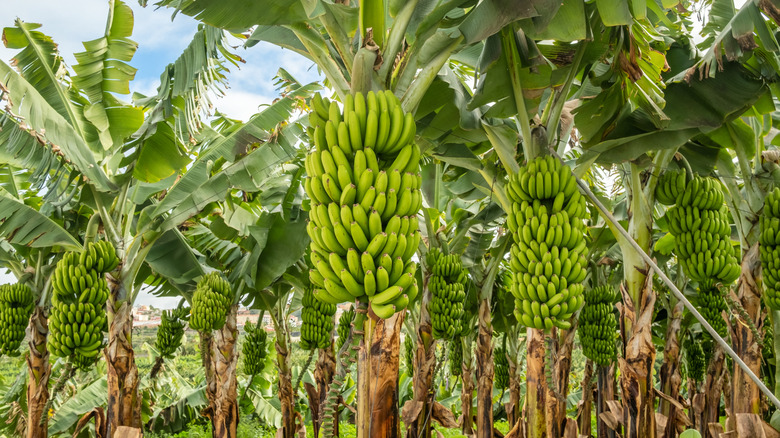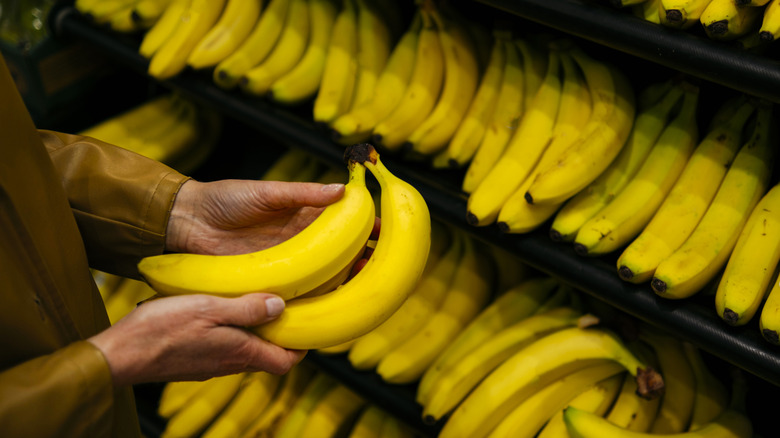Wait, Bananas Have Seeds?
Bananas, a staple of breakfast and a smoothie regular, have a bit of a surprise up their peel — they actually have seeds. Despite the smooth, seedless nature of grocery store varieties like the Cavendish, wild bananas are a whole different story. They actually come with large, black seeds that take up most of the fruit. These seeds are no joke, either, as they're big enough to make you question if there's any room left for the actual banana flesh. As if that weren't enough, bananas are also considered berries in the botanical world.
The bananas we're used to buying from supermarket produce sections have been selectively bred over time to be seedless and easy to munch. Farmers have perfected the banana in this respect, making it a grab-and-go snack that's free from any pesky seeds. But venture into the wild, and you'll find bananas that didn't get the memo. And here's the kicker – you can plant these seeds to grow your own banana tree. Just don't expect the process to be quick, as it can be months before anything sprouts and even longer for the plant to produce fruit.
The seedless story of store-bought bananas
So why don't you rarely ever see seeds in your grocery store bananas? The science behind why bananas take over you smoothie without seeds is all about clever breeding. Cavendish bananas — those are the large, yellow ones we all know today — are sterile, which means they contain no seeds. Instead, they rely on cloning to make more banana plants, making them smooth and consistent. Convenient, yes, but there's a trade-off. Without seeds, Cavendish bananas lack the genetic diversity that comes from natural reproduction. This makes them more vulnerable to diseases and pests.
Take the Gros Michel banana, for instance — it was once the top banana in the market, until a devastating fungus nearly wiped it out. Now, the Cavendish has largely taken its place, but it's still walking a fine line. To top it all off, bananas are slightly radioactive because of their high potassium levels. It's not enough for the average consumer to worry about, but you may still find it surprising that your daily banana has a very mild radioactive charge. So, next time you blend one into your smoothie, remember — that banana is almost certainly a sterile clone with a bit of a radioactive twist.

